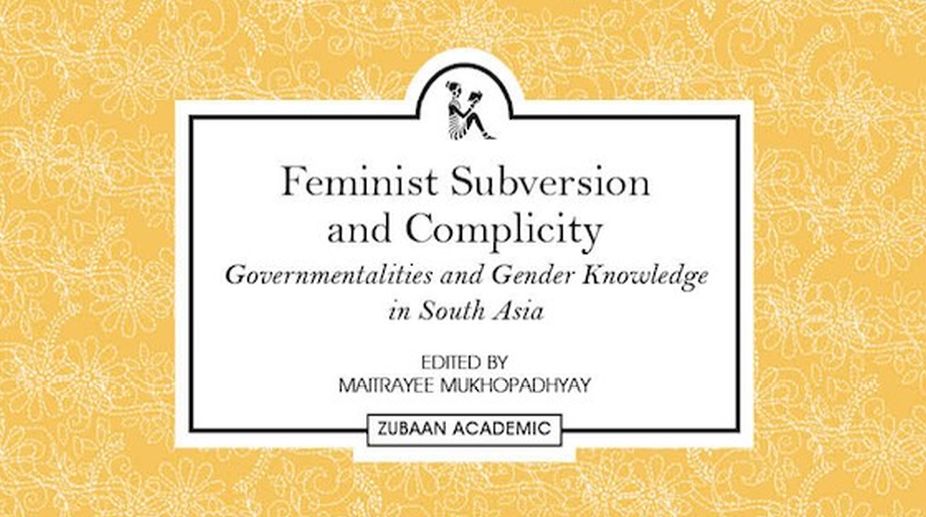Gul Panag advocates unity for women’s empowerment
Gul Panag champions women's unity for empowerment, highlighting health priorities. Known for her diverse roles, she advocates mutual support and resilience.

(Photo: Facebook)
The wild waves of feminism that swept across the 19th and 20th centuries provided women with a hitherto unrecognised strength and women's activism became the politics of the time.
India, the subjugated colony of Britain, heard the roars of tigresses like Pandita Ramabai who, in Lord Ripon's education commission, voiced the injustices meted to women by depriving them of knowledge and Begum Rokeya whose essay, Sultana's Dream, is a radical feminist reimagining yet to be equaled in the 21st century.
Such were the times in which Maitrayee Mukhopadhyay grew up, reading the works of those rebels, her dreams taking shape with each book, for the day when women would walk shoulder to shoulder with men in every sphere. But given the times and her privileged upbringing, such a reaction was quite natural.
Advertisement
What made her different was that she felt disturbed to consider that not all women around her had the luxury to dream thus, let alone demand what, rightfully, belongs to them. Fast forward 35 years and Mukhopadhyay is a globally prominent feminist author.
She has founded the gender department at Royal Tropical Institute, an independent centre of knowledge and expertise, at Amsterdam. She has undertaken a substantial number of projects and publications on gender development issues. It is for women like her that gender equality is a part of official discourses. Issues like violence on women that were originally ignored are now being talked about and are considered a top agenda of UN organisations.
The latest book edited by Mukhopadhyay is named Feminist Subversion and Complicity:Governmentalities and Gender Knowledge in South Asia and it was recently launched at Oxford Bookstore in Kolkata. It is a compilation of the experiences of noted feminists who got involved in national and international governmental projects to reform the position of women and provide them with development benefits.
“Our struggle was to shift the administration's focus to women when generally the subject of development has been male centric and we had been very successful in that sense. But analysing my experiences for the last 15 years, I have found numerous instances where we have been more inclined to fit in with the policies rather than be defiant of their shortcomings. I feel feminist invasion provides the criticisms and that's where subversion comes from.
Our role is to maintain that critic, be it in health or education or any other sphere and, in whatever small ways, it does make a difference,” she says. It worries Mukhopadhyay that “the new India is only for middle class people like you and me. The role of the state should be to provide the kind of social insurance that makes life possible for women by allowing them access to complete education that protects them in times of ill-health. They have to be considered and treated as equal citizens.
The women's movement must build solidarities with other movements like that of the working women or anti-caste movements.” Mukhopadhyay was studying social anthropology and in 1974 did her first project in Maharashtra under the Foundation for Research in Community Health led by Noshir Hormasji Antia, Indian plastic surgeon and social worker. “Those were the most formative days of my career when I found the umpteen potential women had in them to no avail as they were subjected to so many restrictions,” says Mukhopadhyay. The women of Alibag taluka, Raigad, Maharashtra lived on fishing and agricultural activities.
They were subjected to gender divisions of labour and had no time for themselves as they were not expected to see beyond their immediate roles. These women were denied proper schooling not only because of poverty but also as there was no social expectation that they could achieve.
But they dreamt of a better deal for their children and girls. “We trained village health workers who were all women and often illiterate to do first line prevention and treatment. I was astounded to see how these otherwise earthy and strident women had great knowledge of their communities, which they used accordingly and grew into their role.
Working with Dr Veena Shatrughan in Hyderabad, I learned how the problems of chronic low back pain and uterine collapse (due to untreated conditions in child birth) were common in women there due to the back breaking labour their jobs required. But because it was a woman's disease, the medical world neither recognised nor treated it with due seriousness,” she pointed out.
Patriarchy is not the situation only in our country but also in the so-called progressive West, where wage differentials are common and men are overrepresented in jobs, positions and earnings though with the same work and qualifications as women. She shared an instance on farming and land relations between men and women. In India, land is owned by men where women work as family labour.
But in West Africa, women are the main workforce in agriculture and men and women can have different plots and different crops, thus enjoying autonomy.
However, generations of development agents (agriculture experts) have misread this and introduced technologies that have worked against women and undermined their autonomy.
Mukhopadhyay feels that it is a huge responsibility on our part to expand on the foundations established by those before and give the fruits of development to those women who are yet to see the light of the same.
Advertisement